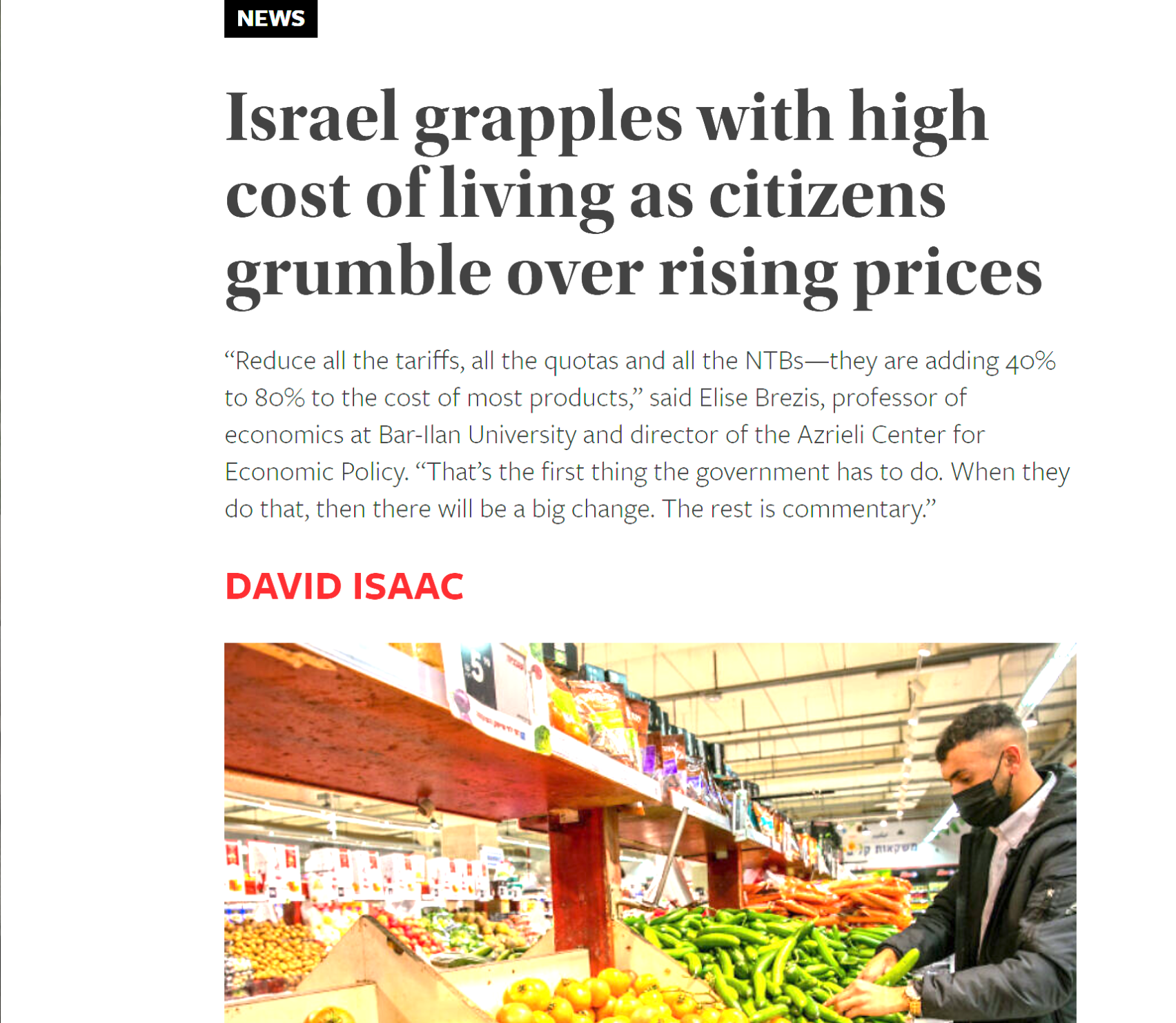Dr. Michael Sarel was interviewed for an article in JNS: “Israel grapples with high cost of living as citizens grumble over rising prices”:
Excerpt:
“[Dr.] Sarel, a senior fellow at the Kohelet Policy Forum, as well as former chief economist and director of state revenue, research and international affairs at the Ministry of Finance, is not as down on the government’s plan […] “It was better than the alternatives,” he said, noting that some politicians were calling for price controls. “Instead, the government did two things which I think are much better. One was to reduce the import duties on some products. The second was to increase the disposable income of middle-income families with children. It doesn’t really deal with the cost of living in the sense of the prices of the products, but it increases the disposable income, so at least it will be easier for these families to deal with the high prices.”
Still, Sarel agreed that the plan doesn’t cut to the heart of the problem and that Brezis is correct that doing away with import restrictions offers the single biggest bang for the buck for reducing Israel’s cost of living.
That said, “the standards make it difficult to import and raise costs,” added Sarel. “It reduces competition in the domestic market because domestic manufacturers are protected. They don’t have to fear imports.”
“Do you know that we have a standard for tea bags in Israel different from Lipton? It’s ridiculous,” he pointed out. “The only reason is because that was exactly the barrier Wissotzky needed. They created a standard for Wissotzky.” The Wissotzky Tea Company, founded in Moscow, opened a Middle East branch in 1936 and long ago moved its headquarters to Tel Aviv.
The plan has several elements. First is a tax break for middle-class, working families with children, ages 6 to 12 (230 shekels, or about $70, a month per child). Second is a cut in import taxes for basic commodities, including foods like olive oil, meat and fish, as well as an assortment of other items, from kitchen utensils to furniture to car parts. In addition, the plan increases the subsidy for children’s day care and, to help relieve rising energy costs, cancels a coal tax.
“There are a lot of import restrictions—not really import duties—but non-tariff barriers [NTBs]. It’s very difficult to import stuff. You have to fill out a lot of forms. There is a lot of bureaucracy; there’s a lot of regulation. You have to test a sample of everything you’re importing,” he said.
He said small importers can’t navigate the Israeli bureaucracy, which is an expensive process. As a result, only large importers are able to bring products into Israel.
While import restrictions are the key issue, Sarel said other important factors contribute to living expenditures. “In Israel, not only do we have a lot of protections for the agricultural sector, we have a very peculiar way of protecting it,” he said, noting that the protections come not in the form of subsidies (although there are some) but rather in allowing the farmers to form “legal cartels.”
“There is a cartel of eggs. There is a cartel of vegetables. There’s a cartel of milk. For each one of these agricultural products, there is a cartel. And they don’t have to compete with imports because imports are very restricted. Of course, this increases the price of food,” he said.
Reform is difficult because the agricultural lobby is powerful in the Knesset and organizes quickly, said Sarel, adding that “now there is another attempt at reform and it seems that there is some chance that it will succeed.”




